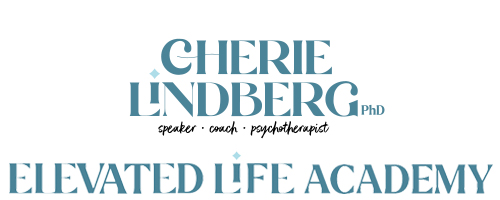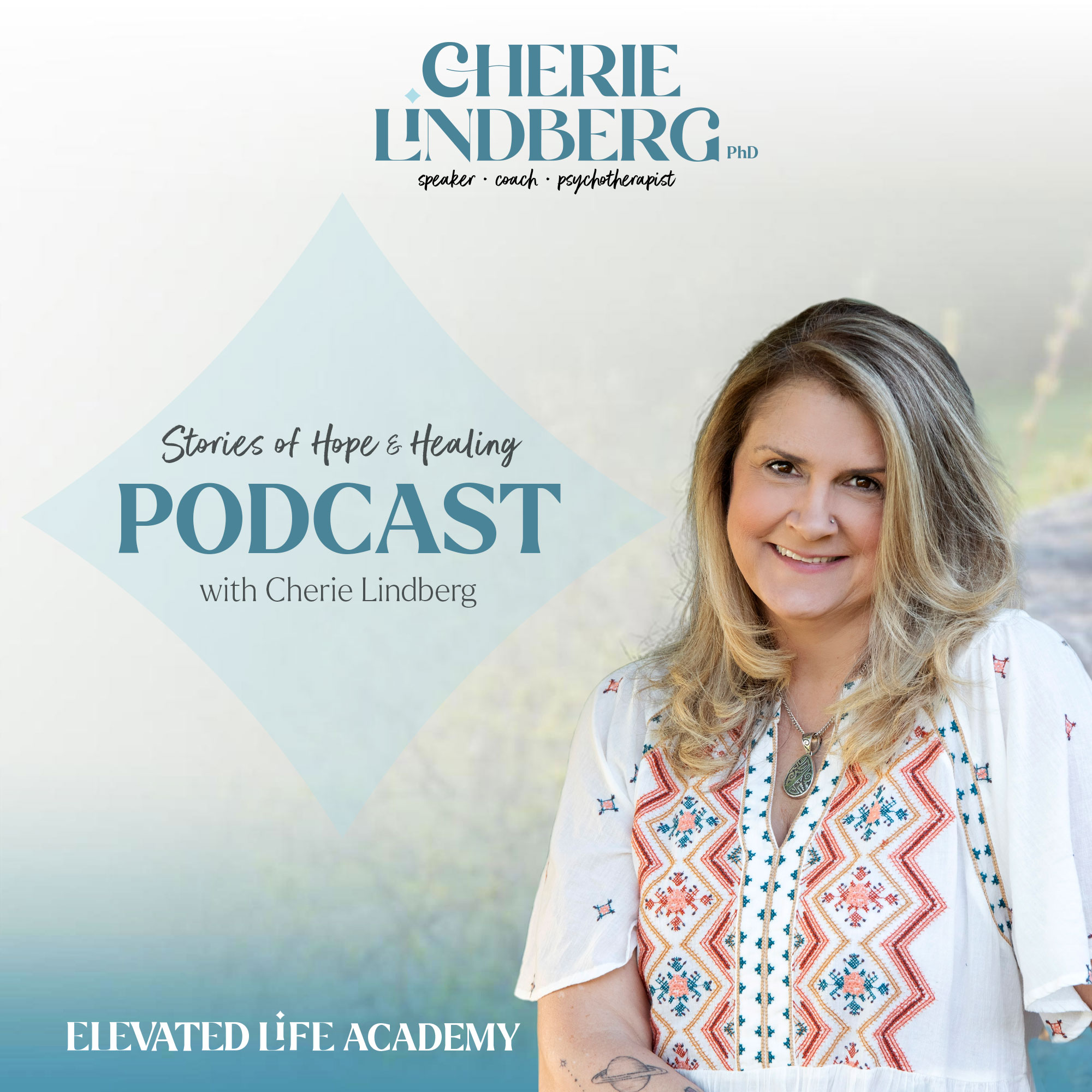Episode 9
9: Healing Meets Community with Aimee Hadfield
Discover a new kind of healing space at Aimee Hadfield’s Hearten House.
Aimee Hadfield, LCSW, CET3, ACT, AES, is a recognized leader in the field of experiential, embodied, action, and expressive psychotherapy. Licensed in Utah and New Mexico, Aimee utilizes both trauma-informed and trauma-focused approaches to treatment.
She’s passionate about helping people recognize the roles they play in their lives and helping them actively create the roles they want (while discarding the ones they don’t).
Along with a deep understanding of psychodrama, sociometry, and group psychotherapy, her unique approach incorporates role theory, narrative therapy, acceptance and commitment therapy, parts work, sandtray, Brainspotting, lifestyle medicine, mindfulness, and somatic therapy. Fueled by the belief that thoughts, feelings, and behaviors make perfect sense within the context of one's story and roles, Aimee empowers clients as she co-creates real healing and lasting change with them.
Aimee is the founder of Hearten House in Salt Lake City, a unique therapeutic space achieving the goal of reimagining mental health care. She also runs a successful clinical and consulting practice, facilitating multi-day intensive therapy experiences with clients from all over the world.
Aimee holds a Master of Social Work and a Bachelor of Science in Behavioral Science with an emphasis in Family Studies, and over 1000 hours of specialized postgraduate clinical training.
Cherie Lindberg and Aimee Hadfield talk about Hearten House, a mission-driven space in Utah that provides various healing modalities and support for small business owners in the well-being sphere.
Resources
Transcript
[00:01:44] Aimee Hadfield:
[:[00:02:13] I'm a licensed clinical social worker. And at that point it was 2019 and I was almost finished with my master's degree. And I just knew I wanted to teach and share, but didn't necessarily wanted to do clinical work. And part of the reason behind that was in my own journey, I hadn't gotten a lot of results from talk therapy.
[:[00:03:02] And so the idea for Hearten House was born. So we started looking for physical space and I had a very clear vision of the space that included things like exposed brick a loft type environment. exposed ducting and lots of natural light. And I saw a photograph about three months after the idea had come to me, I saw a photograph on Instagram and thought, oh, that's, that's the space.
[:[00:04:16] I sent her a message and asked to be connected with the listing agent for this space, and it turned out that it was the owner of the building. I spoke with him.
[:[00:04:40] And I didn't know. This was March 4th, 2020. So the world was shutting down. And we signed a lease anyway for 5,000 square feet and kind of dependent on in-person work. And we're still here. And the mission has always been to provide a space for well-being so that we can support practitioners, business owners and the community. A lot of what we did during the initial months when we were here, was that we were able to utilize our space to host a group called Recovery Vibe, which is a nonprofit that does dance and movement, expressive classes for people in all types of recovery.
[:[00:05:37] Cherie Lindberg: Wow. To imagine that you trusted this vision even when the world was shutting down.
[:[00:05:45] Aimee Hadfield: And I think, that's part of what sustained me and my partner, Jeff, through it was really believing that it was a mission that was ours to bring into the world. I'm sure there's a spreadsheet somewhere of the businesses that have been launched, but because of the coworking space model, we've been able to provide flexible by the hour office space to people who don't want to be in practice full time or people who are transitioning from agency work to private practice for the first time. And this is not just therapists. We have a couple of life coaches, a Reiki practitioner. We have been part of incubating physical therapy companies, dieticians, mental health practices. And what we've seen happen is that they've started with an hourly kind of model and outgrown us.
[:[00:06:59] And that's how we met. And so that's the other thing I love about having the space is the opportunity to share it with the community. And also to share it in a way that we are bringing embodied methods to practitioners so they can then go carry on and utilize what I believe are the most powerful types of therapeutic interventions in their own practices.
[:[00:07:27] Cherie Lindberg: Yeah. I mean, it sounds like you're a launching pad.
[:[00:07:37] Cherie Lindberg: Can you share any stories of hope and healing that have come to fruition because of this mission that you've had, that you've witnessed or you've heard.
[:[00:08:21] And that is a big process. I am able to host trainings for that here. And I am able to host groups here. And I think if I had started out in a regular private practice, that would've been a hard transition. I already have the space with the 12 and a half foot rug that connect as a stage and all of that.
[:[00:09:56] Just coming as a client, then participating in trainings here, and watching the growth of being involved with the space, this person is completely different today than they were three years ago.
[:[00:10:18] Aimee Hadfield: Yes. And I think a big piece is that the practitioners this person worked with have access to the community, because that's a big piece of it for me as we talk about, especially with therapists always, and even more so right now, things like burnout being overworked and lack of balance and all of the things that come with that.
[:[00:11:37] And so things like that seem really important, and I think that they're all intricately woven, but very important when we talk about how to practice in a sustaining and sustainable way. The community piece. And I know that affects the clients that seek care here. I meet clients out in public that have been here, and tell me how the space itself has affected their healing process. Because the space is not a sterile clinical environment. It's very imaginative and invokes curiosity and sometimes people see things and, we'll interpret them one way and then that can go right into session.
[:[00:12:30] Aimee Hadfield: We wanted it to feel warm and inviting. And in the very beginning I worked with a branding consultant, and she asked the question, how do you want people to feel? And my answer was, I want 'em to feel like they can take their shoes off. To me it meant that it felt like home, that it felt safe and that it didn't feel sterile or pristine. In the space mixture of high-end furnishings and repurposed furnishings, and a mixture of local art and vintage things, and really designed and layered to evoke something.
[:[00:13:28] And things like that, that allow people to access, we talk about inner child work, but in a physical way. What does it actually feel like to hide in a pile of stuffed animals as an adult? But also the space becomes part of the warmup. For clinical work, but so the way the space is set up is that there are, in the large area, there's seven private offices, and then a large area that's about 2000 square feet.
[:[00:14:12] And so things like that, that evoke kind of a homey presence, but also act as when I'm doing intensive therapeutic work, we do art at the table. drama and sociometry on the rug. There are seating areas. a library, a nook full of art supplies. So we can really use that multimodal approach to healing. And then the kitchen table, something that I didn't anticipate, there was a family who saw a therapist who was renting space here. And what I noticed about this family is that every week they would come at their session time and I think that different members of the family did sessions separately, but the members who weren't in session would sit at the kitchen table and have snacks and drinks 'cause somatic needs come first. And so the family would sit at the table and work on homework together at the kitchen table. And then one day there was a training, where the table is blocked off and I noticed that the family was in the waiting room all on their phones.
[:[00:15:20] Cherie Lindberg: Have that connection.
[:[00:16:07] Cherie Lindberg: Well, a couple things that are coming to mind as you're talking, Amy. One is the cubby kind of effect that is there, too. Like these little cubbies with different concentrations.
[:[00:16:30] Aimee Hadfield: Exactly, yeah. So that, rather than being on their phone or in their head while they're waiting to go into session, they're interacting. Whether they are using an object to ground or whether they are connecting as a family or whether they are noticing a book and reading a book.
[:[00:17:05] Cherie Lindberg: Yeah. So, in wrapping up here, what is it like now? This started in 2019. What it's evolved into and what you're noticing. How does it feel to see this mission come to fruition?
[:[00:17:51] Cherie Lindberg: That's beautiful. Yeah. Well, I just wanna thank you for taking the time to be part of this podcast. And like I said, we'll put the link to your space underneath the podcast, and I'll email you some other questions so that people can see and be able to contact you.
[:[00:18:10] Cherie Lindberg: I'll be anxious to see how this continues to evolve. And I know I get a chance to see you again in October. But to see where else this is gonna take you. Yeah.
[:[00:18:22] Cherie Lindberg: Of course. Thank you so much.

